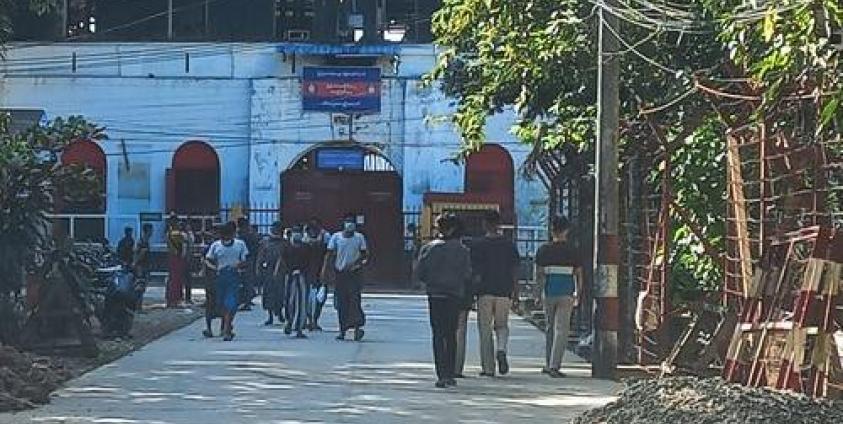Locals with sources inside Sittwe Prison in Rakhine State, report that due to a shortage of medication, inmates who are in poor health are finding it almost impossible to access proper medical treatment.
A political prisoner who was recently freed from prison has revealed that prisoners in Sittwe Prison are only being treated in the facility's hospital, which reportedly lacks sufficient medication. This has resulted in several individuals in poor health receiving inadequate medical attention, with some even losing their lives as a consequence.
"Medicine is far from perfect. For those who are seriously ill, they have little chance of getting proper treatment in prison. We met a Minbya local in jail who became gravely ill and over the course of just two days, his appearance visibly deteriorated. He died in the prison hospital," he said. Other sources have claimed that certain medicines sent from outside to the prisoners often do not reach the sick inmates.
The political prisoner said, " When one falls ill inside the prison the only option is often limited to taking Burmeton for general illnesses, including diarrhea. Sending medicine from home is not allowed, and any medicine that does make its way into the prison is closely inspected. As a result, the chances are very slim of obtaining the necessary medication. The former political prisoner commented that due to the insufficient supply of medication in Sittwe Prison, “ most of the cases of pain and illness can only be treated with Burmeton.”
It has been reported that some of the individuals detained for political reasons in Sittwe Prison are elderly and are experiencing the after-effects of torture during their arrests and interrogations.
Following the outbreak of COVID-19 in Rakhine state prisons in 2020, visitations to inmates were suspended. Currently, the incidence of COVID-19 in the state has decreased significantly, but family members of inmates have reported that visitations remain suspended.
The prohibition on family members visiting inmates is a clear violation of basic human rights, and many family members of prisoners are now calling for the ban to be lifted and for visitations to resume.







